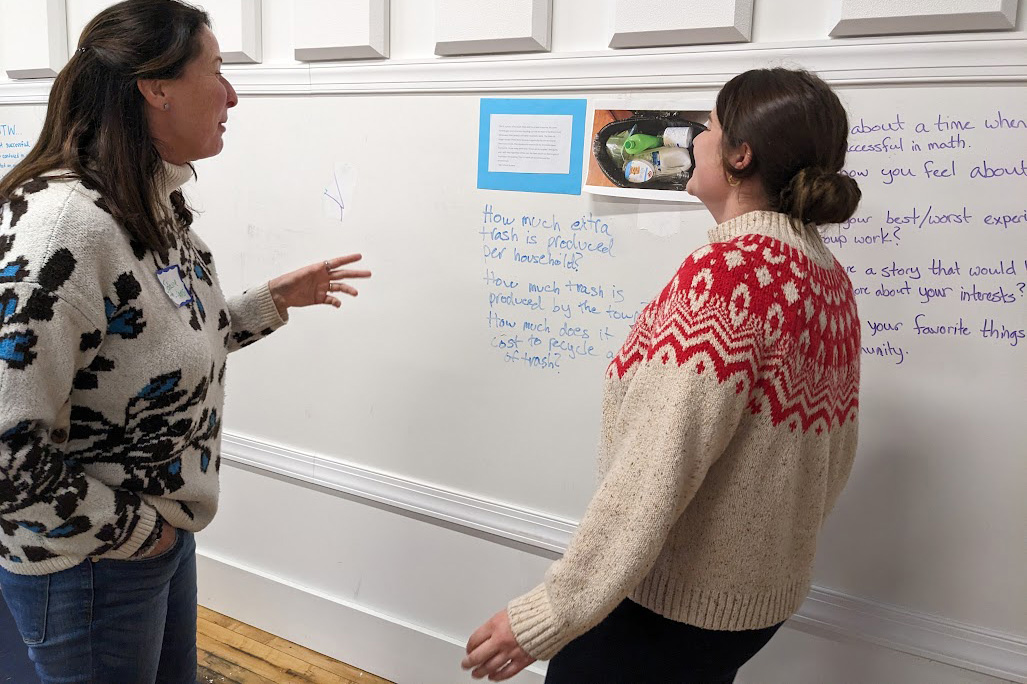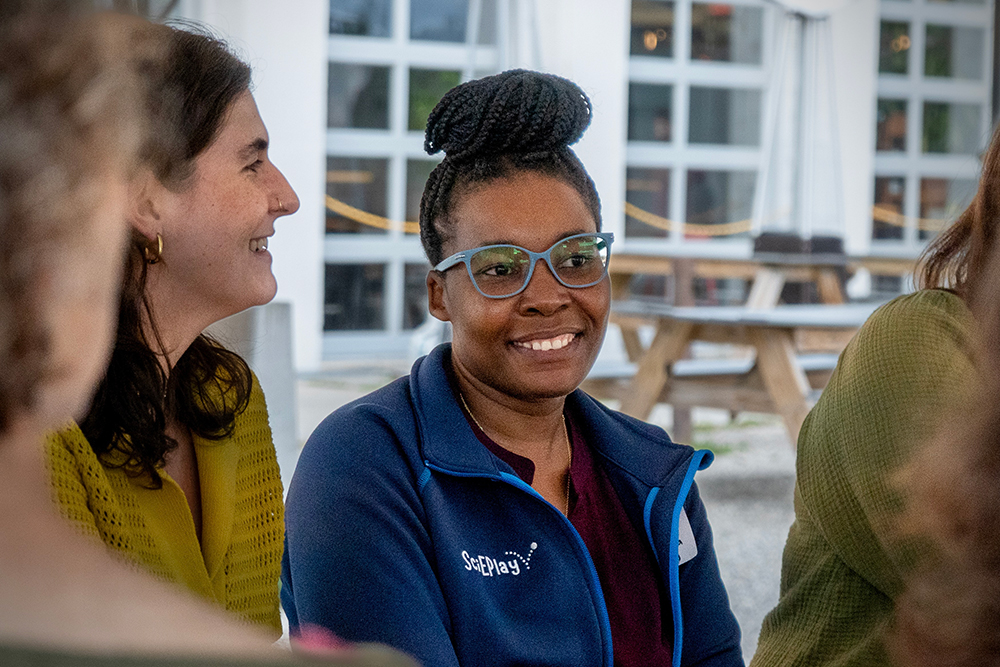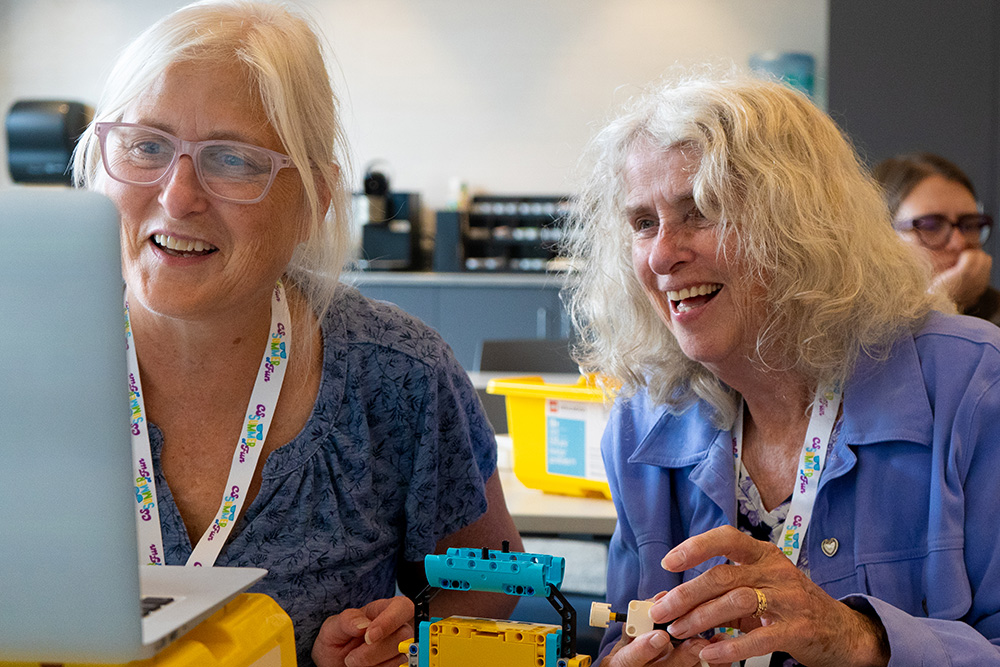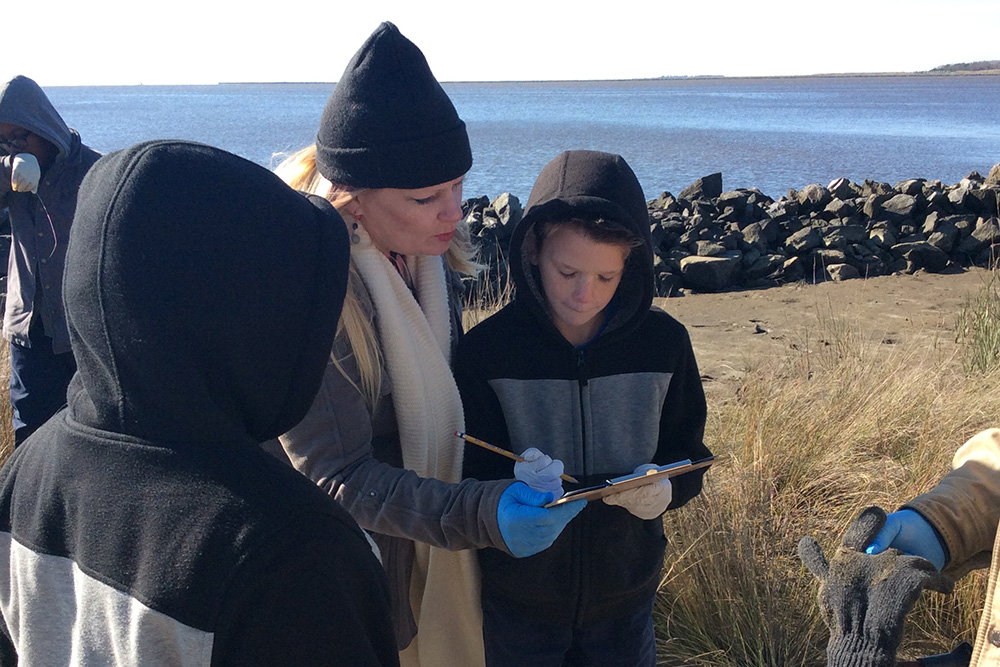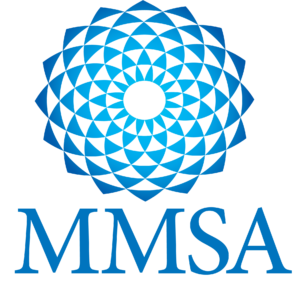In recent years, more businesses are recognizing the power of neurodiversity, especially in STEM fields. Individuals with neurological differences, like Dyslexia, ADHD, and Autism, among others, often bring fresh perspectives and innovative problem-solving skills that can transform the workplace. Unfortunately, some of the current approaches to teaching math are leaving many neurodiverse learners (NDLs) out of the STEM workforce. With funding from the Onsemi Giving Now program from January to June 2024, MMSA and eight middle school teachers explored strategies for better supporting Neurodiverse Learners by expanding the math classroom into the community.
The goal of the project, named Better Together, was to conduct empathy interviews, develop and pilot community-based learning activities, and make key recommendations for professional learning activities that could support other educators in implementing community-based math with NDLs.
Empathy interview questions are a key part of design thinking, a methodology that fundamentally revolves around understanding the user. These interviews are not your typical Q&A sessions. Instead, they’re a deep dive into the user’s experiences, feelings, motivations, and challenges.
Eight teachers from Troy Howard Middle School and Gardiner Area Middle School conducted empathy interviews with NDLs in their classes. Then teachers developed and piloted with their students several grade-level community-based math activities, including:
- Measuring the impact, on individuals and businesses, of long-term bridge construction in their town;
- Analyzing the growth of invasive plants in a local pond and what it would cost to mitigate it;
- Determining the costs and labor of maintaining a swimming pool.
444 total students participated in these activities. Reflecting back, teachers recognized the strengths of neurodiverse learners while recognizing how providing students different ways to express what they know helps them succeed. Teachers also recognized that more training on accommodations and modifications for neurodiverse learners, additional examples and videos of learners engaging with these types of tasks, and additional time to hear from educators, advocates, and parents would be needed to improve the piloted activities.
While the scope of this project was small, the takeaways were valuable, and teachers expressed interest in learning more about neurodiversity and started the process of understanding their students better through this process.


